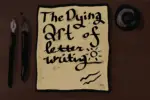My Korean friends, with whom I grew up, recently invited me to play games with them and their friends on Zoom. Being a game fanatic and not being able to find many games online, I grasped at the opportunity with no prior knowledge of any Korean games.
However, I was told that I just needed to know the basic motion of the games. It’s a simple four-beat system that doesn’t require any external devices. To start, I patted my lap with both hands, clapped for the second beat and then snapped with my left hand and then my right hand. My friends told me to practice these four motions, and that learning to speed up these gestures would be very helpful. The beat would be lap, clap, left snap, right snap.
Later that night, I joined the Zoom meeting, and my friends immediately made me the center of attention. I greeted everyone there and introduced myself. Afterward, the host of the game night announced the four games we would be playing. The first of the Korean games was called Assa, the second Babo, the third the 3-6-9 game and the fourth would be the Noonchi game.
Assa: The Nickname Relay Race
Assa is a Korean phrase that is the equivalent to people in America saying, “Yes!” after winning some sort of competition. This game is primarily played with a large group, but it can also be played with two people if you tweak the rules. The objective is to be the last one standing. In the game, all contestants maintain the four-beat system. In the beginning everyone says, “[lap] I [clap] am [snap] groun-[snap]ded, [lap] Let’s [clap] intro-[snap]duce [snap] ourselves!” Then everyone goes in a circle, introducing themselves with nicknames. Because this session was on Zoom, the host determined the order for players prior to starting.
After everyone has introduced themselves — with their own motions — the game begins. The nicknames can be anything that is, ideally, four syllables like “washing machine,” “watermelon” or “mashumallow.” In the game, one person calls someone else and they will call someone else. For example, the game might play out like this: “[lap] A -[clap] ssa [pose] Washing Machine, [lap] A-[clap]ssa [pose] Watermelon.” Then the player called on will say, “[lap] A-[clap]ssa [pose] Watermelon, [lap] A-[clap]ssa [pose] Mashumallow.” Mashumalllow will then say, “[lap]A-[clap]ssa [pose] Mashumallow, [lap] A-[clap]ssa [pose] Watermelon.” Once everyone gets the gist, players speed up, hoping that someone will mess up and be eliminated from the game.
Babo: The Number Jumble Game
The next of these Korean games is Babo, the Korean word for fool. Again, the objective of the game is to be the “smartest” person standing. For this game, there is no introductory round, and it is harder to win. The first player will say a number between one and five, but put a different number up with their fingers. Then the second player will say the number the previous player signaled while holding up another number. Then the cycle will continue until someone messes up. When they do, everyone pats their lap, claps and points at the fool saying, “[lap and clap] fool, [lap and clap] fool.”
After a practice round to help me and the first-timers understand the game, it began with the four-beat motion to get everyone ready. Then the first player started: Lap, clap, “three” while raising up four fingers. The second player repeated the two beats and said, “four” while raising two fingers. Flustered, the third player raised two fingers and blurted out, “t-t-two.” Then everyone patted their laps, clapped, raised two fingers and imitated the third player saying, “t-t-two, [lap][clap]t-t-two[lap][clap]. Fool[lap][clap], fool [lap][clap].”
3-6-9: Visualization Elimination
The next game is called ssam (three), yook (six), gkooh (nine). For this game, the players have to be able to visualize what they say, while avoiding any numbers that contain a three, six or nine. This game does not require the four-beat system, but does need to be counted in order. For instance, the first player will say “one” and the second player will say “two.” Since the third player cannot say “three,” they will clap and the fourth player will say, “four.” The fifth player says, “five,” and the sixth player claps, and so on. Even for numbers like 13 or 23, the player has to remember not to say the number and clap. When they get to numbers that have two threes, players have to keep their mouth shut and clap twice. So 33 is *clap clap* and 133 is *clap clap* as well. The game seems fairly easy, but it’s actually very hard to remember to clap on three, six and nine when everyone else is shouting out numbers.
Noonchi: Intuition
The last game was the Noonchi game. In Korean, noonchi can be compared to common sense, but it is actually much more intricate than that. Noonchi is being able to read the room and knowing how to act in response. For example, if a couple looked like they were mad at each other, a child with good noonchi might go straight to their room. Knowing that, I asked my friends to explain the rules. They told me there weren’t that many, but instead, a lot of intuition. As there are six people, each player would have to read the room and know when to call one, two, three, four or five. It had to be in chronological order and if you were caught saying the same number as someone else or left until the end, you were eliminated.
The games were really awesome, and I enjoyed meeting all the new faces; whether it’s with friends or coworkers, it’s always a good time when others get to preparing a funny online game to play, whether it’s a scavenger hunt or one of the Korean games above. I had no idea what time it was when we finished — time really does fly when you’re having fun. I waited for my friends to wave goodbye and then told them that I had a great time. If they ever have another game night, I told them I would be happy to join.


















I want to play koren game that I can chat with frands and play the game